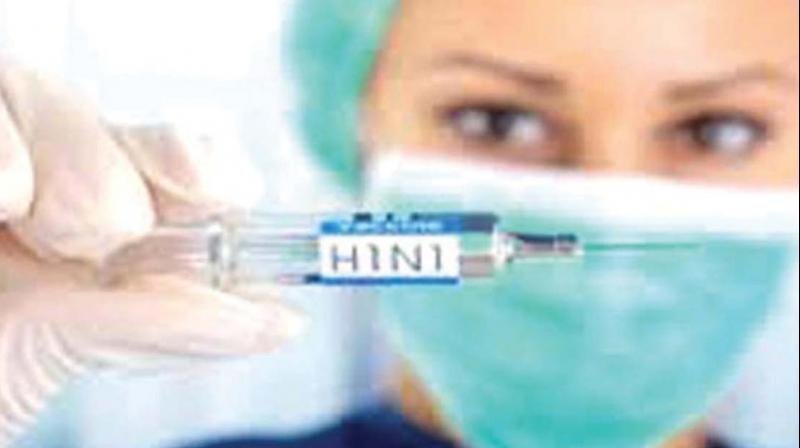Kerala battle set to tackle H1N1

Thiruvananthapuram: Unlike in the past, fevers erupting in any part of the country or even outside can reach susceptible population in the State in a question of hours owing faster travel. Among the influenza like illnesses, more H1N1 cases are being reported in the state this year. From January 1 to February 5, the state has reported 104 confirmed cases and three deaths. While authorities say the situation is not bad, with cases of H1N1 rising alarmingly in northern parts of the country especially Delhi, Rajasthan and Himachal the state needs to maintain strict vigil. Various types of fevers are also showing an increase in some parts of the state.
In north, some states are quite alarmed about the situation and they are constantly monitoring it through video conferencing. Kerala has a fairly good system of giving treatment. There is no need to pick the cases here as it is endemic period.
The health authorities here are giving guideline based treatment without waiting for testing and result which are a time consuming process and also not feasible when large scale cases are reported.
There is a robust system in place here based on which more people can be given treatment, in fact all people who have any semblance of H1N1 can be offered treatment. The state is following the national and international protocol in this matter.
The state also has a surveillance system which looks at the trend. In February, Kerala had lowest positivity tend in the recent times. This month 11.1 per cent swabs were positive. It came down from 17 per cent in January and 20 per cent in December. Last year the state recorded 35 per cent positive trend.
On an average 20 swabs are taken daily -one to two in each district. The health authorities look at the trend on a weekly basis.
Samples are taken from people with common cold and Influenza Type Illnesses. People coming from affected areas like Delhi or Rajasthan, small or large in number, do not make any difference.
There is an institutional mechanism in place. People have to come for treatment. "We have an IEC system, DMOs and District Surveillance Officers swing into action whenever and wherever there is an outbreak. We keep them under match. Any outbreak situation of ILI, it is reported at the PHC level first as all such cases come to the primary health care system. The doctors have been advised to report any unusual spurt in cases. Whenever such cases are spotted the district authorities will visit the spot and investigate," said Dr Amar Fettle, State Nodal Officer H1N1.
Experts say airport surveillance makes no sense. If one in ten people have H1N1 here what is the point in having surveillance at the airport asked a doctor. At the moment 11 per cent swabs are positive which means 1 in 10 person is H1N1. In other words out of 10 people who are sneezing one is H1N1 . Last month one out of every 5 person was H1N1.
The surveillance testing is handled adequately by NIV Alappuzha and Manipal centre which are part of national influenza surveillance centre. This year so far 723 samples were sent for testing of which about 100 were positive. Last week the central government did a review and the officials said they were satisfied with Kerala's surveillance testing system.
Adequate stock of medicines
According to H1N1 nodal office, the state currently has a stock of 3.8 lakh Oseltamivir tablets. Besides, 1.5 lakh tablets are in Karunya stores for general requirement. Doctors say since H1N1 is viral fever, just depending on Paracetamol won’t really help. What is required is good supportive care, intake of plenty of warm oral fluid like gruel, complete food, fruits like papaya and amla.
Ayush remedies preferred by the people are also provided supportive care. It is a viral fever spread by the people, of the people for the people. Careless action of people, not following cough etiquette among other things is causing illness. Even after so much of mess we are still not learning from experience. We are not caring about cough hygiene and sneeze, people are spreading the disease themselves just by not showing health etiquette. Anybody who wants to control ILI, will have to strongly advocate cough hygiene and cough etiquette.
Last year the state had faced a heavy strain and this year initially. The seasonality and the patterns are are widely differing all over the country.
Experts say predictions cannot be made like in the past but thanks to Kerala's preparedness, situation is under control at the moment.

